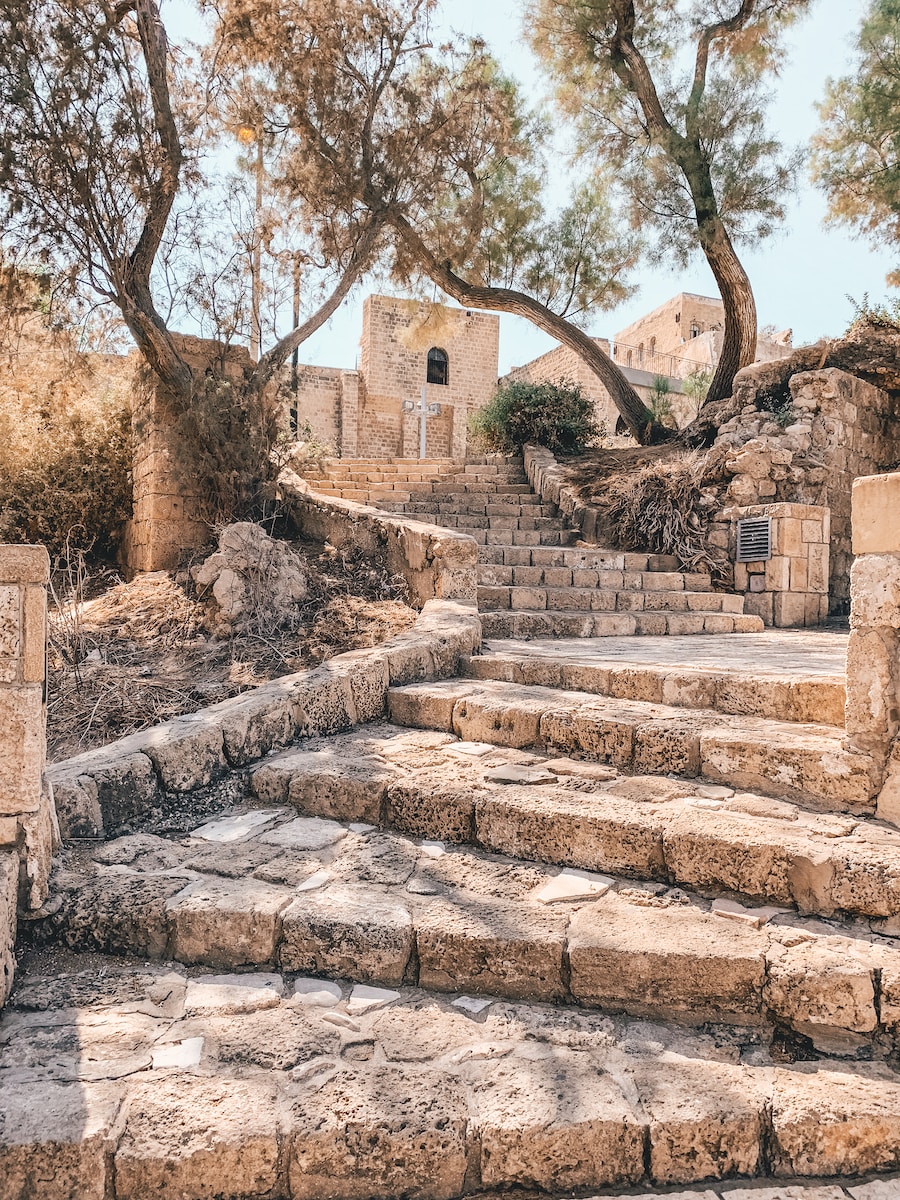Introduction
Psalm 68 is a biblical psalm that celebrates the triumphal procession of the Divine King. It is a hymn that praises God’s power and majesty, highlighting the themes of victory, worship, and the universal impact of God’s salvation. This article aims to interpret and analyze the main themes, participants, and significance of the triumphal procession in Psalm 68.
Psalm 68 is a powerful hymn that exalts the strength and triumph of God.It is believed to have been written during a time of celebration, possibly connected to the arrival of the ark of the covenant in Jerusalem. The psalm reflects the historical and cultural context of the Israelite community, emphasizing God’s victory over enemies and His faithfulness to His people. Throughout the psalm, God’s power and majesty are proclaimed, inspiring awe and reverence among the worshipers.
The main theme of Psalm 68 is the triumphal procession of the Divine King. The psalm celebrates God’s victory over His enemies and His establishment of justice and righteousness. The procession serves as a visual representation of God’s power and presence, inviting the participation of His people in the rejoicing and praise.It is a grand celebration of God’s triumph and the unity of His people.
Overview of Psalm 68
Psalm 68 is a hymn that praises God’s power and majesty. It is a poetic expression of gratitude and awe, celebrating God’s victory and deliverance. The historical and cultural context of the psalm is believed to be connected to the arrival of the ark of the covenant in Jerusalem, signifying God’s presence among His people. The psalm’s enduring impact on religious traditions is evident in its incorporation into liturgical practices, where it continues to be used as a powerful expression of worship and praise.
The psalm begins with an invocation for God to arise and scatter His enemies, emphasizing His power and might. It then describes God’s triumph over His enemies, symbolized by the scattering of smoke and the melting of wax. The psalmist rejoices in God’s victory and calls for the righteous to sing praises to Him. The psalm also emphasizes God’s care for the vulnerable and His ability to provide strength and power to His people. It proclaims God as a defender of the fatherless and widows, who sets the solitary in families and brings prosperity to the bound. The psalm concludes with an invitation for all nations to recognize God’s strength and power and to sing praises to Him.
The Divine King in Psalm 68
In Psalm 68, the Divine King is portrayed as a powerful and victorious figure.He is described as a defender of the vulnerable, a provider for the dispossessed, and a source of strength and power for His people. The psalmist recognizes God’s role as a father to the fatherless and a defender of widows, highlighting His compassion and justice. The Divine King’s power is demonstrated through His triumph over enemies and His ability to bring prosperity and deliverance to His people. The portrayal of the Divine King in Psalm 68 invites believers to recognize His power and authority, while also encouraging them to practice compassion and care for the marginalized.
For example, in verse 5 of Psalm 68, it says, “A father to the fatherless, a defender of widows, is God in his holy dwelling.” This verse highlights the Divine King’s role as a protector and provider for those who are vulnerable and marginalized in society. The psalmist acknowledges that God cares for the fatherless and widows, demonstrating His compassion and justice. This portrayal of the Divine King challenges believers to emulate His character and show love and care for those in need.
The Divine King’s invitation to His people to practice compassion is a significant theological implication of His power. It emphasizes the importance of not only recognizing God’s strength and victory but also reflecting His character in our own lives. The Divine King’s power is not meant to be wielded for selfish gain, but rather to defend the vulnerable and provide for the dispossessed. This theological understanding calls believers to imitate the Divine King’s compassion and seek justice and righteousness in all aspects of life.
The Triumphal Procession Theme
The triumphal procession theme in Psalm 68 symbolizes God’s victory and the scattering of His enemies. It is a grand celebration of God’s power and the unity of His people. The procession represents a visual and tangible manifestation of God’s presence and triumph. It is a symbolic act that proclaims the sovereignty of the Divine King and invites the participation of His people in the rejoicing and praise. The triumphal procession in Psalm 68 can be compared to other biblical and cultural processions, drawing parallels and highlighting its unique significance.
The triumphal procession in Psalm 68 is a powerful symbol of God’s victory and His establishment of justice and righteousness. It is a grand celebration of His power and might, as the Divine King leads His people in triumph over their enemies. The procession serves as a visual representation of God’s presence among His people and His triumph over His enemies. It is a joyous occasion that invites the participation of His people, as they join in praising and rejoicing in God’s victory.
The triumphal procession in Psalm 68 can be compared to other biblical and cultural processions, such as the triumphal entry of Jesus into Jerusalem. In both cases, the processions symbolize victory and the establishment of God’s rule. The triumphal entry of Jesus into Jerusalem, described in the New Testament, is seen as a fulfillment of the messianic prophecies and a proclamation of His kingship. Similarly, the triumphal procession in Psalm 68 proclaims the victory and kingship of the Divine King. It is a powerful symbol of God’s triumph and the unity of His people.
The Worship of God in the Sanctuary
Psalm 68 mentions the worship of God in the sanctuary, which is closely connected to the triumphal procession. The sanctuary is a sacred space where God’s presence is experienced and celebrated. It is a place of worship, where the people gather to offer their praises and thanksgiving to God. The worship in the sanctuary is intertwined with the procession, as both serve as expressions of devotion and recognition of God’s power and majesty. The sanctuary becomes a focal point for the community’s worship and a tangible reminder of God’s faithfulness and deliverance.
The worship of God in the sanctuary mentioned in Psalm 68 is a significant aspect of the triumphal procession. The sanctuary is a sacred space where God’s presence is experienced and celebrated. It is a place where the community gathers to offer their praises and thanksgiving to God for His triumph and victory. The worship in the sanctuary is intimately connected to the procession, as both serve as expressions of devotion and recognition of God’s power and majesty. The sanctuary becomes a tangible representation of God’s presence among His people, a place where His faithfulness and deliverance are acknowledged and celebrated.
In verse 24 of Psalm 68, it says, “The singers go first, the musicians follow; between them are the young women playing the timbrels.” This verse highlights the role of music and singing in the worship of God in the sanctuary. The procession into the sanctuary is accompanied by singers, musicians, and young women playing timbrels, creating a joyful and festive atmosphere. Music has always played a significant role in religious worship, and in the context of the triumphal procession, it serves as a means of expressing the joy and gratitude of the worshipers. The sanctuary becomes a place where the community’s praise and thanksgiving are offered to God, as they join in the procession and worship Him with music and song.
Participants in the Procession
The triumphal procession described in Psalm 68 involves various participants. Singers, musicians, and representatives from different tribes are mentioned as contributors to the procession. The singers lead the way with music and singing, creating an atmosphere of joy and celebration. The musicians play instruments and make a joyful noise, adding to the festive atmosphere of the procession. The mention of different tribes highlights the unity and loyalty of the people to their Lord and King. Each group’s contribution to the procession holds significance, representing their unique role in praising and honoring God.
The participants in the triumphal procession described in Psalm 68 play diverse roles, each contributing to the overall celebration and praise. Singers lead the way, using their voices to express the joy and gratitude of the worshipers. Musicians accompany the procession with instruments, adding a rhythmic and melodic dimension to the celebration. The mention of different tribes, such as Benjamin, Judah, Zebulun, and Naphtali, highlights the unity and loyalty of the people to their Lord and King. Each tribe represents a distinct group within the community, and their participation in the procession signifies their devotion and commitment to God.
For example, in verse 25 of Psalm 68, it says, “In front are the singers, after them the musicians; with them are the young women playing the timbrels.” This verse illustrates the order and arrangement of the participants in the procession. The singers lead the way, followed by the musicians, and accompanied by the young women playing the timbrels. This coordinated and harmonious participation reflects the unity and devotion of the people to their Divine King. The procession becomes a collective act of worship and praise, as each participant offers their unique gifts and talents to honor God.
#Messianicprophecy #Psalm36interpretation #Divinedeliverance #Messianichope #Davidiclineage #Biblicalprophecy #JesusasMessiah #OldTestamentprophecy #Messianicfulfillment #SonofGod #Messianicanticipation #Divineprotection #WorshipoftheMessiah #TheLord’sAnointed #PropheticPsalms #SalvationthroughtheMessiah
Historical and Cultural Context
The historical and cultural context of Psalm 68 is believed to be connected to the arrival of the ark of the covenant in Jerusalem. The ark of the covenant was a sacred object associated with God’s presence among His people. Its arrival in Jerusalem was a cause for celebration and rejoicing, as it signified God’s faithfulness and victory over enemies. The historical significance of God’s triumph over enemies in the context of Psalm 68 is relevant to the Israelite community, as it affirmed their belief in God’s power and His commitment to protect and deliver His people.
Psalm 68 reflects the cultural beliefs and practices of the Israelite community at the time. The procession and worship in the sanctuary were integral parts of their religious traditions and were seen as acts of devotion and recognition of God’s power and presence. The psalmist’s invocation for God to arise and scatter His enemies reflects the cultural understanding of God’s role as a warrior and deliverer. The mention of different tribes participating in the procession highlights the importance of community and unity within the Israelite society. The historical and cultural context of Psalm 68 provides a deeper understanding of the psalm’s themes and imagery, as well as its significance to the Israelite community.
Relevance in Religious Traditions
Psalm 68 holds significant relevance in religious traditions, both within Judaism and Christianity. The psalm is interpreted and used in various religious contexts, including its incorporation into liturgical practices. It continues to be a powerful expression of worship and praise, inviting believers to recognize and celebrate God’s power and triumph. The enduring impact of Psalm 68 on religious traditions is evident in its continued use and interpretation in worship and prayer.
In Judaism, Psalm 68 is often recited or sung during religious ceremonies and festivals. It is seen as a powerful declaration of God’s victory and His role as the Divine King. The psalm is incorporated into liturgical practices, serving as a reminder of God’s faithfulness and His power to deliver His people. It is also seen as an invitation for believers to emulate the Divine King’s compassion and practice justice and righteousness in their own lives.
In Christianity, Psalm 68 is often associated with the Ascension of Jesus and the establishment of His kingdom. The psalm is seen as a prophetic proclamation of Jesus’ victory over sin and death, as well as His role as the triumphant Divine King. The themes of triumph and worship in Psalm 68 find resonance in Christian worship and are expressed through hymns and prayers. The psalm’s invitation for all nations to recognize God’s strength and power is seen as a call for global praise and worship.
The enduring relevance and significance of Psalm 68 in religious traditions demonstrate its enduring impact on worship, beliefs, and the understanding of God’s power and triumph. It continues to inspire believers to recognize and celebrate God’s victory, while also calling them to practice compassion and seek justice in the world.
Power and Majesty of God
Psalm 68 emphasizes the power and majesty of God through His triumph over enemies and His protection of the vulnerable. The psalmist acknowledges God’s role as a defender of the fatherless and widows, highlighting His compassion and justice. God’s power is demonstrated through His victory over enemies, as He scatters them like smoke and melts them like wax. The psalm invites believers to recognize and celebrate God’s power, while also inspiring them to fight for justice and compassion in the world.
The power and majesty of God are evident throughout Psalm 68. The psalmist acknowledges God as the one who rides on the clouds and delivers His people from their enemies. This imagery emphasizes God’s authority and sovereignty over all creation. The psalm also highlights God’s role as a provider and protector, as He sets the solitary in families and brings prosperity to the bound. This portrayal of God’s power and care for His people invites believers to trust in His strength and to seek His guidance and provision.
For example, in verse 28 of Psalm 68, it says, “Summon your power, God; show us your strength, our God, as you have done before.” This verse is a call for God to display His power and strength, just as He has done in the past. It reflects the psalmist’s confidence and trust in God’s ability to save and deliver. The psalmist recognizes that God’s power is not limited to the past but is available in the present and the future.
The power and majesty of God are not meant to be passive observations but are meant to inspire believers to action. The psalmist’s declaration of God’s power and victory is followed by an exhortation to the righteous to sing praises and to proclaim God’s greatness. The psalm invites believers to recognize and celebrate God’s power while also inspiring them to fight for justice, provide for the vulnerable, and liberate the oppressed. The power given to believers is not meant for personal gain but for the pursuit of justice and righteousness in the world.
Universal Impact and Salvation
Psalm 68 proclaims the universal impact of God’s victorious procession, leading to the salvation of the world. The procession symbolizes the submission of nations to God’s rule and authority. It is an invitation for all nations to recognize God’s strength and power, transcending boundaries and inviting global praise.
The universal impact of God’s victorious procession is highlighted in Psalm 68. The psalmist declares that kings will bring gifts to God because of His temple in Jerusalem, symbolizing the submission of nations to God’s rule. The psalm also speaks of God’s judgment on the nations who delight in war, emphasizing the triumph of God’s procession and the defeat of His enemies. Even powerful nations like Egypt and Cush are called to submit to God’s rule. The victory of God’s procession extends to all nations, leading to their ultimate salvation.
The invitation for all nations to recognize God’s strength and power is a significant theme in Psalm 68. The psalmist proclaims that God is more awesome than His holy places, inviting believers to acknowledge and worship Him as the one true God. The psalm’s message of universal praise and recognition of God’s power challenges believers to transcend cultural and national boundaries and to embrace a global perspective of worship and praise.
Conclusion
In conclusion, Psalm 68 celebrates the triumphal procession of the Divine King and invites believers to recognize and celebrate God’s power and triumph. The psalm’s themes of victory, worship, and the universal impact of God’s salvation resonate in religious traditions and continue to inspire worship and praise. The procession serves as a powerful symbol of God’s victory and His establishment of justice and righteousness. It is a visual and tangible manifestation of God’s presence and triumph, inviting the participation of His people in the rejoicing and praise. The enduring relevance and significance of Psalm 68 in religious traditions demonstrate its enduring impact on worship, beliefs, and the understanding of God’s power and triumph. As believers, we are called to recognize and celebrate God’s power and to emulate His compassion and care for the vulnerable in the world.



